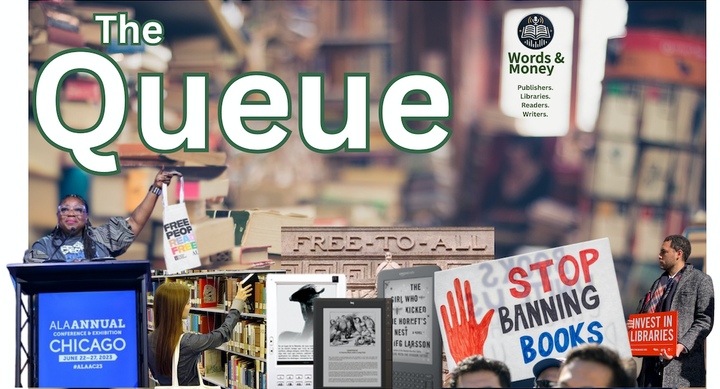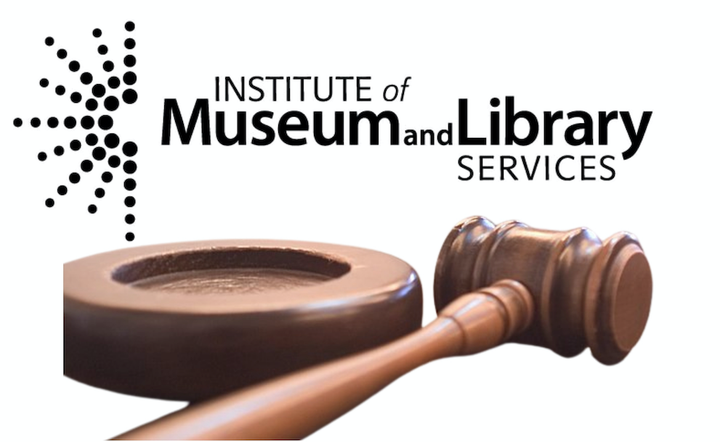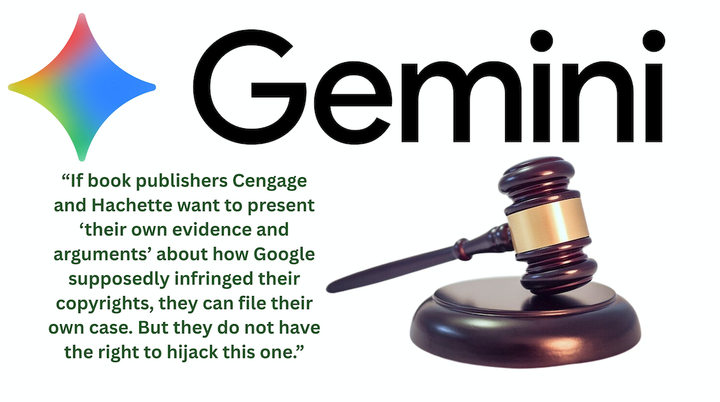The Queue: Library News for the Week Ending September 19, 2025
Among the week's headlines: The Trump Administration's censorship efforts are ramping up; Delaware passes a Freedom to Read Law; why an Alabama library is still being denied state funding; and a look at how publishers are approaching AI.
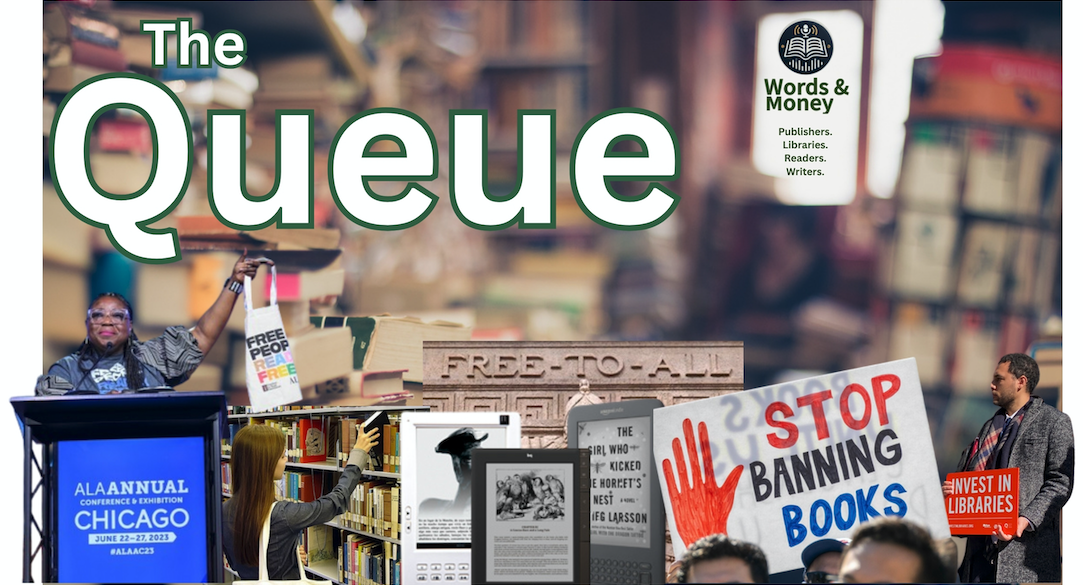
It's hardly a surprise when Donald Trump files a lawsuit accusing someone of treating him unfairly. But a $15 billion defamation lawsuit filed by Trump this week against the New York Times and publisher Penguin Random House has still managed to raise eyebrows.
The suit, filed in federal court in Florida, accuses the Times, its reporters, and Penguin Random House of publishing a series of articles and a book, Lucky Loser: How Donald Trump Squandered His Father's Fortune and Created the Illusion of Success which, Trump lawyers allege, were "carefully crafted" to "damage President Trump’s business, personal, and political reputation" ahead of the 2024 election.
"Defendants’ pre-election goal was to kill three birds with one stone: (a) damage President Trump’s hard-earned and world-renowned reputation for business success, (b) in the process, sabotage his 2024 candidacy for President of the United States, and (c) prejudice judges and juries in the unlawful cases brought against President Trump, his family, and his businesses by his political opponents for purposes of election interference," the lawsuit alleges.
Like several unsuccessful suits previously filed by Trump, the suit is clearly frivolous. And the comically obsequious complaint is a cringeworthy masterclass on bad lawyering. So much so that, in a stinging rebuke, a federal judge today tossed the the complaint, and gave lawyers 28 days to file a complaint that properly states a cause of action.
The timing is also questionable: Lucky Loser was hardly a runaway commercial success, selling just over 25,000 copies to date in hardcover according to Circana, despite earning strong reviews. But the paperback edition comes out on September 23. And, if these were more normal times, the publicity department at Penguin Random House might consider sending a muffin basket to the White House for getting the book back in the headlines.
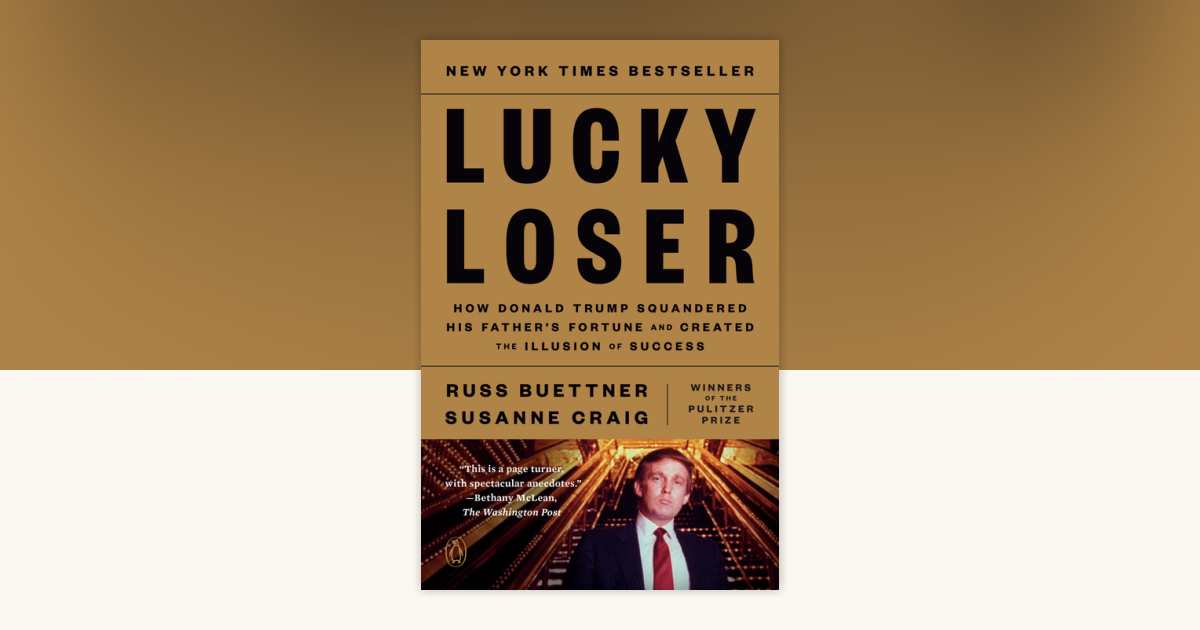
The paperback edition of Lucky Loser is set to drop next week.
But these are not normal times. As evidenced by ABC's chilling move this week to suspend late night comic Jimmy Kimmel under pressure from the FCC and the Trump administration, Trump's latest lawsuit is part and parcel of an alarming and fast moving attack on free speech and the free press. In fact, the complaint itself prominently celebrates recent capitulations by CBS and ABC as part of Trump's "successful undertaking to restore integrity to journalism."
For their part, both the Times and Penguin Random House have vowed not to give in, and to fight the lawsuit.
“This lawsuit has no merit. It lacks any legitimate legal claims and instead is an attempt to stifle and discourage independent reporting," a Times spokesperson said, adding that the paper "will not be deterred by intimidation tactics" and will "continue to pursue the facts without fear or favor and stand up for journalists’ First Amendment right to ask questions on behalf of the American people.”
A spokeswoman for Penguin Random House also said the suit was meritless, and vowed to "uphold the values of the First Amendment that are fundamental to our role as a book publisher.”
Still, amid sweeping book bans (which Penguin Random House has been leading the fight against), attempts to defund libraries and public broadcasting, efforts to censor museums and national parks and undermine universities, and a conservative billionaire takeover of media, the lawsuit is yet another sign that a fundamentally American freedom is facing a serious—and rapidly escalating—threat.
In a cogent, well argued piece at MSNBC, a frequent target of the right, Anthony L. Fisher posted his take on the state of affairs.

"The political morass into which we have been sinking for years accelerated to terrifying degrees over the past week," Fisher observes. "What’s needed now is courage. Corporations, nonprofits, colleges and other institutions must understand—if it isn’t evident already—that capitulation will not save you."
The Trump Administration's Censorship of National Park Exhibits Is Underway
The New York Times reports this week that another phase of Trump's MAGA cultural revolution is now underway: the censorship of exhibits in several national parks.
"The Trump administration has ordered several National Park Service sites to take down materials related to slavery and Native Americans, including an 1863 photograph of a formerly enslaved man with scars on his back that became one of the most powerful images of the Civil War era," the Times reports, noting that the move was first reported by the Washington Post. "The directives stemmed from President Trump’s executive order in March that instructed the Park Service to remove or cover up materials that “inappropriately disparage Americans,” part of a broader effort by Mr. Trump to promote a more positive view of the nation’s history."
Critics have been swift to criticize the move, including in West Virginia, where, local affiliate WBOY reports that the Harpers Ferry National Historic Park—the location of John Brown’s raid and several major Civil War battles—has been targeted by the administration for its portrayals of slavery.

In a statement, the ACLU of West Virginia blasted the administration's moves.
“By sanitizing the brutal realities of slavery, the administration denies visitors the complete historical context necessary for informed citizenship in a democracy,” ACLU-WV Executive Director Eli Baumwell said. “Until this week, visitors to Harpers Ferry had the chance to learn about slavery and the struggle to end that evil institution as part of our local and national history by visiting this historical site. Attempts to re-write hard-to-face parts of our history is the work of propagandists, not public servants.”

Delaware Passes Freedom to Read, Anti-SLAPP Laws

Via Delaware Public Media, news that Delaware has passed a pair of laws designed to discourage book bans and protect residents from frivolous freedom of speech lawsuits. The bills were signed into law Monday by Governor Matt Meyer.
"The Freedom to Read Act was passed with some bipartisan support in the General Assembly and ensures books are not removed from public and school libraries for identity-based, ideological or religious reasons," the report notes, adding that the bill "creates a simple, fair, and uniform process that all of our libraries can follow to safely cultivate and nurture their collections, free from the influence of manufactured controversies and political partisanship.”
Meyer also signed The Uniform Public Expression Protection Act, which shields residents from so-called SLAPP (strategic lawsuits against public participation) actions, which are often used to chill "constitutionally protected speech" through the threat of costly litigation.
"It's important that these kids see books that speak to them and that make them feel good about who they are and who they aspire to be, and books can do that, and libraries do all of that," Meyer said during the bill signing ceremony at Joseph E. Johnson Elementary, according to the report. "Our libraries have the potential to empower the next generation of Delawareans to think critically, to ask important questions and grow into the type of empathetic citizens and leaders we want them to be, and that's not going to happen if we isolate or exclude certain texts or ideas from our public spaces."
Alabama Library Officials Are Still Withholding Fairhope's Library Funding

The Alabama Political Reporter reports that the Fairhope Public Library will continue to be denied its share of state aid after the Alabama Public Library Service board tabled a vote on whether to restore or "permanently revoke" its funding over the library's decision not to censor some books the state has said must be restricted for “sexually explicit” content. The article notes that the meeting turned into a debate about whether the board's policy constitutes censorship. Cut to the chase: of course it is censorship!
"While legal questions abound about whether the APLS definition of 'sexually explicit' material is binding on whether it can be the standard for how local libraries determine sexually explicit materials in their own collections, it is a catch-all definition that includes even brief descriptions of nudity," the Reporter notes. "Using that definition in conjunction with the APLS administrative code, some of the books remaining in the teen section in Fairhope would be considered sexually explicit by the state’s standards. That would put Fairhope in violation of the state aid code despite the Fairhope Library director and board leaning on the legally-backed Miller-for-minors test."
The move comes after the Fairhope Public Library was denied some $42,000 in state funding after state officials said the library was in violation of its rules governing allegedly inappropriate content. In response, a fundraiser has since covered the loss of state funding.
Meanwhile, the AL.com reports that Fairhope officials are not expecting the APLS to restore its funding. "Fairhope library board chair Randal Wright told AL.com that she believes this is just another delay and the state board ultimately will not approve the funding," the report notes.
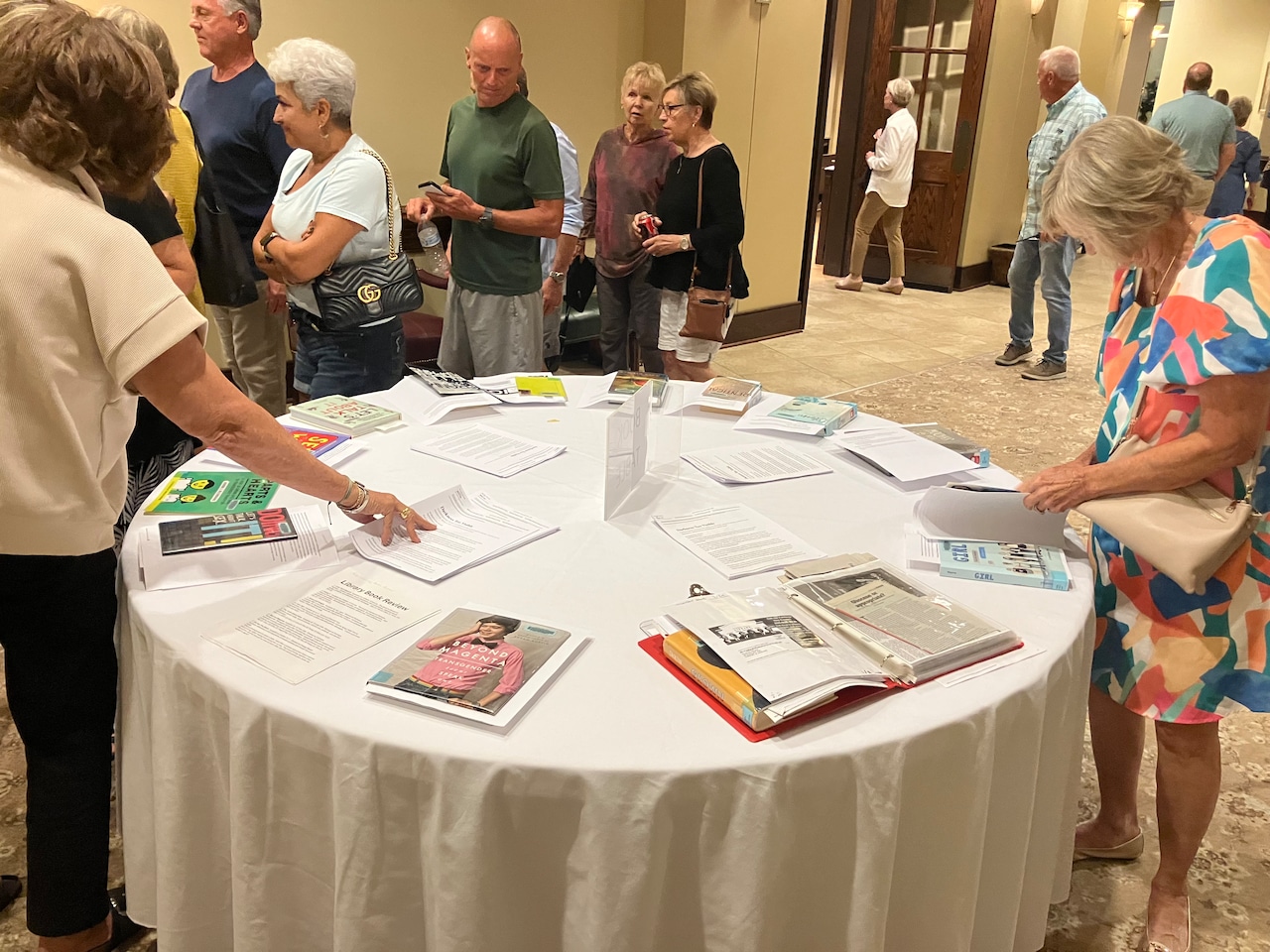
Judge Has More Questions About Anthropic Settlement

In a September 16 filing, federal judge William Alsup ramped up the pressure on the attorneys pursuing a landmark $1.5 billion deal to settle copyright infringement claims over Anthropic's use of pirated ebooks. And he's given the parties until September 23 to provide answers, ahead of a scheduled September 25 hearing. The questions come after Alsup on September 8 declined to grant preliminary approval to the settlement, saying the deal was far from complete.
"Alsup’s pointed questions suggest that while he is open to approving the deal, he wants to ensure it meets the rigorous standards of fairness, reasonableness and adequacy required under Rule 23, Law.com reports.
Fair enough, but why the incredibly rushed timeline?
In the Wake of AI, More People are Apparently Asking Librarians for Books that Don't Exist

It's hard enough for authors to compete against all the real books about there, but 404 Media reports that more people are apparently seeking out AI-hallucinated books in libraries, and its having an impact on the work of some librarians.
"Reference librarian Eddie Kristan said lenders at the library where he works have been asking him to find books that don’t exist without realizing they were hallucinated by AI ever since the release of GPT-3.5 in late 2022," writes Claire Woodcock. "But the problem escalated over the summer after fielding patron requests for the same fake book titles from real authors—the consequences of an AI-generated summer reading list circulated in special editions of the Chicago Sun-Times and The Philadelphia Inquirer earlier this year."
BISG: Publishers Are Warily Experimenting with AI
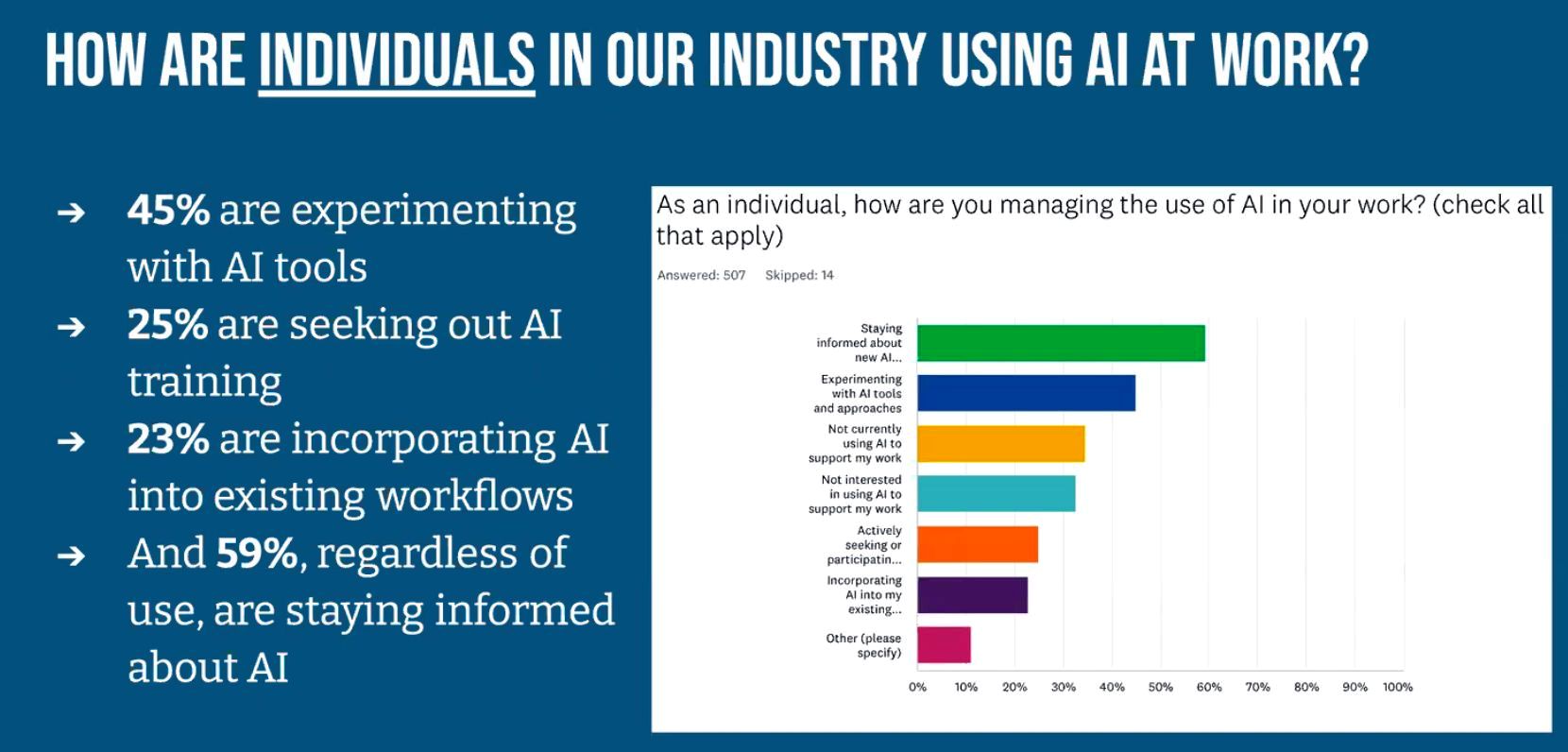
The Book Industry Study Group this week held a webinar this week to offer a look at its recently concluded survey about AI and publishing. Thad McIlroy posts about about it at his Future of Publishing blog.
"The survey results paint an unsurprising picture: the book publishing industry is proceeding with caution. I sense that most are searching for a way to confront the conundrum: this technology has some evil roots and a potentially catastrophic impact on the world—but I think it could make my work easier, and perhaps better," McIlroy writes. "While half reveal that they are using AI, a third are not currently using it, and a similar percentage are not interested in using it at all. Nearly everyone expressed serious concerns about the technology. This does not auger well for increased AI adoption in publishing in the immediate future."
Library Budget Battle Escalates in Minnesota County
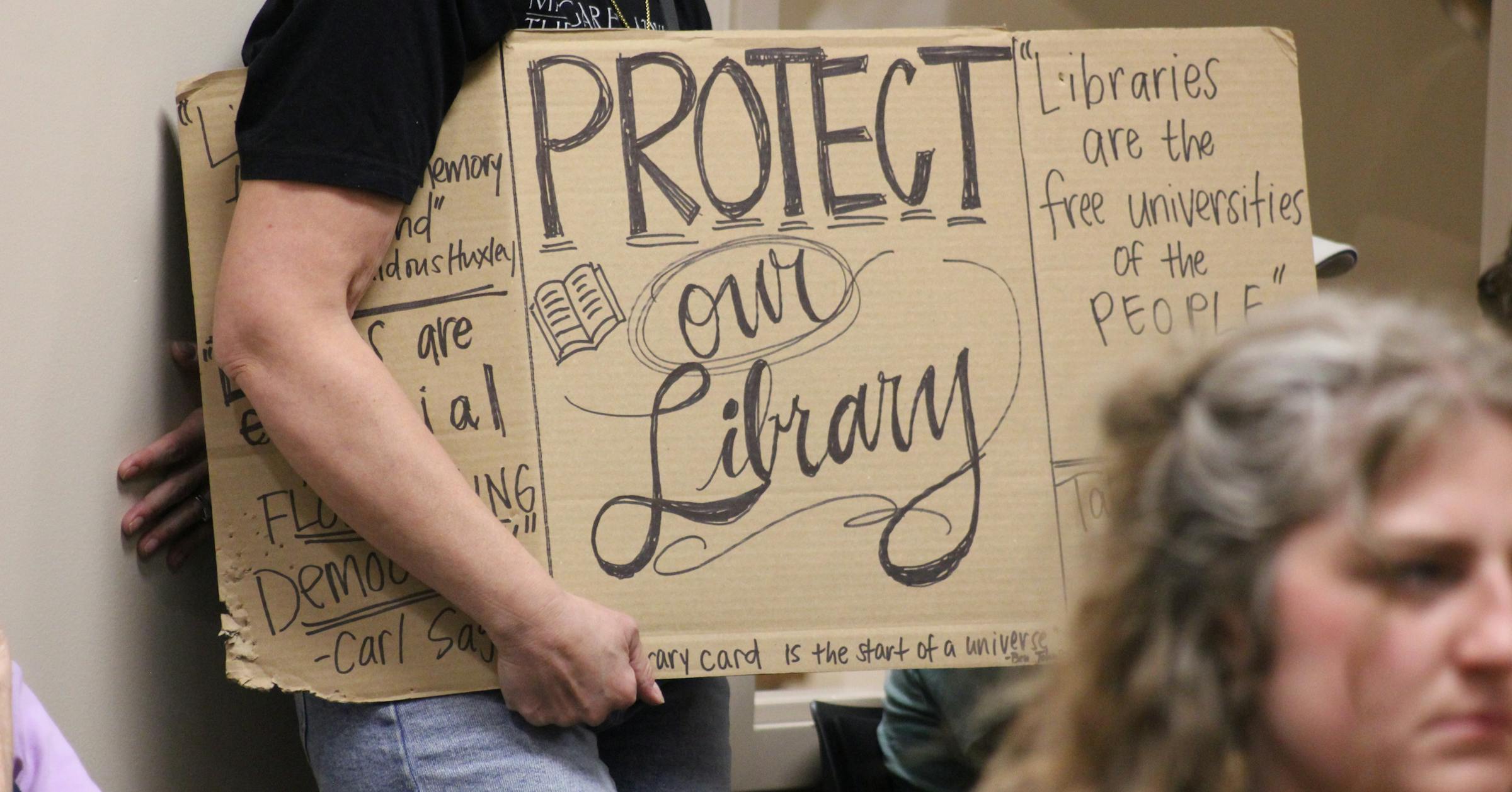
Via the Minnesota Star Tribune, a report on a "raucous" board meeting as county commissioners in Bemidji moved to slash the library budget nearly in half.
"In the raucous meeting, they lined up to share stories of how the library is a lifeline, a place to print résumés and for teachers to meet with homeless students. Where the elderly and less privileged connect to the internet and kids discover a love of reading. They pleaded for more time and careful consideration," the report notes.
In New York's Capital Region, Voters Overwhelmingly Approve Library Budget Despite Tax Increase
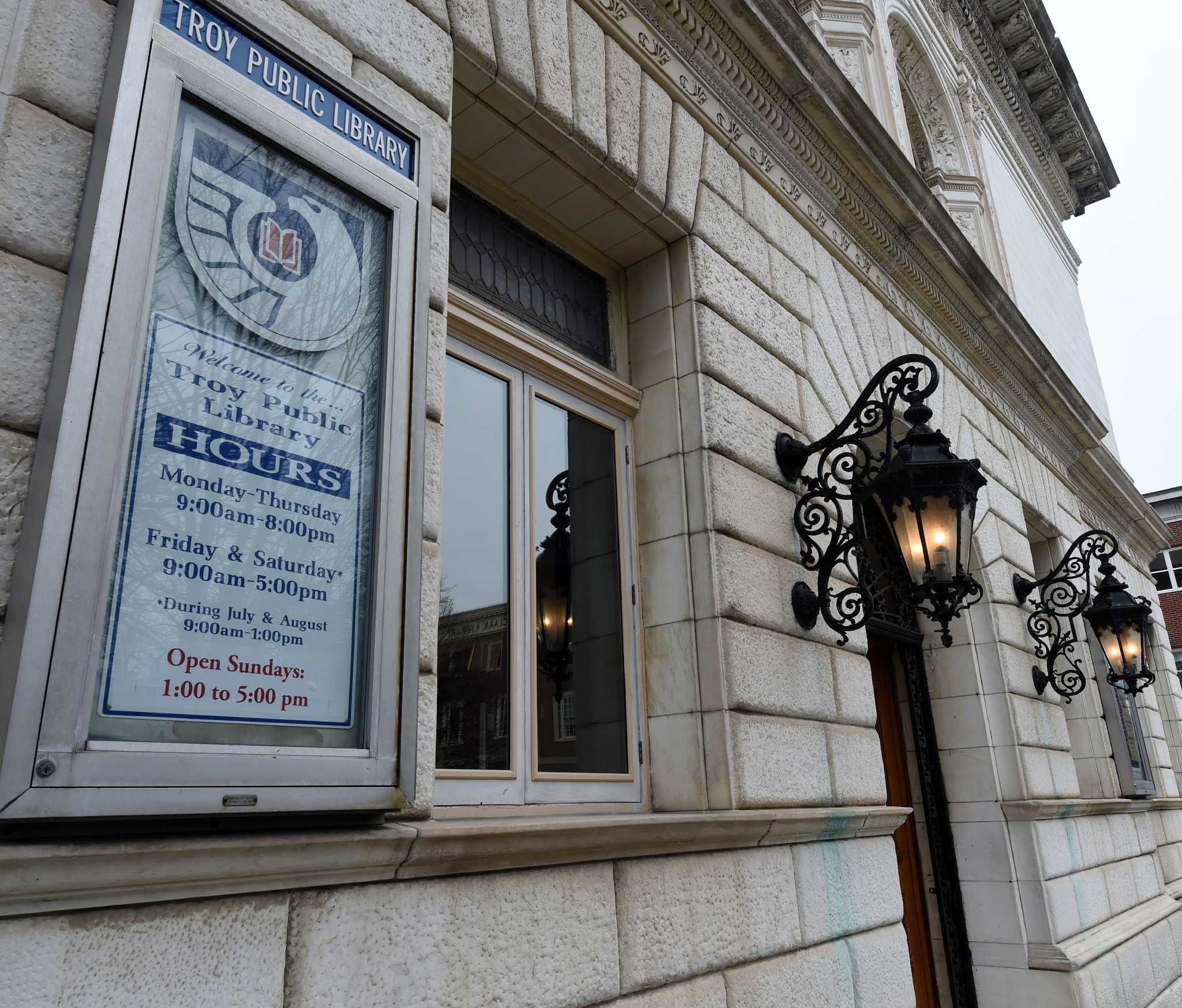
Some good news on library funding from New York state, where the Times Union reports that voters approved a new library budget for the Troy Public Library despite a 30% tax increase. While the 30% figure stands out, in dollars the report notes the increase means that average taxpayer would pay about $38 more annually, from "$132 to $170" in library taxes.
"The $2.5 million spending plan passed by a vote of 1,074 to 309, according to unofficial election returns," the report states, adding that the vote passed with roughly 70% support. "Library officials argued that the tax increase was necessary to keep the Lansingburgh branch open and to fund employee compensation packages and infrastructure investments," the report notes.
Patrons in Nebraska Rally to Keep Hours, Digital Service

More good budget news this week from Nebraska, where local affiliate KSNB reports that library supporters successfully rallied at a special meeting this week to keep the the Hastings Public Library from cutting hours and to retain the digital service Hoopla.
"At the start of the meeting, many residents and library staff came forward and spoke about how a reduction in hours and the loss of Hoopla would affect them, their families and the community. After hearing this, the city council amended the budget to keep the current hours and Hoopla," the article notes. "Library director Kelly Reisig said it warms her heart to see all of the people standing up for the library."
Hoopla Partners with ARSL, Connecticut Library Consortium to Expand 'Marketing Makeover' Program
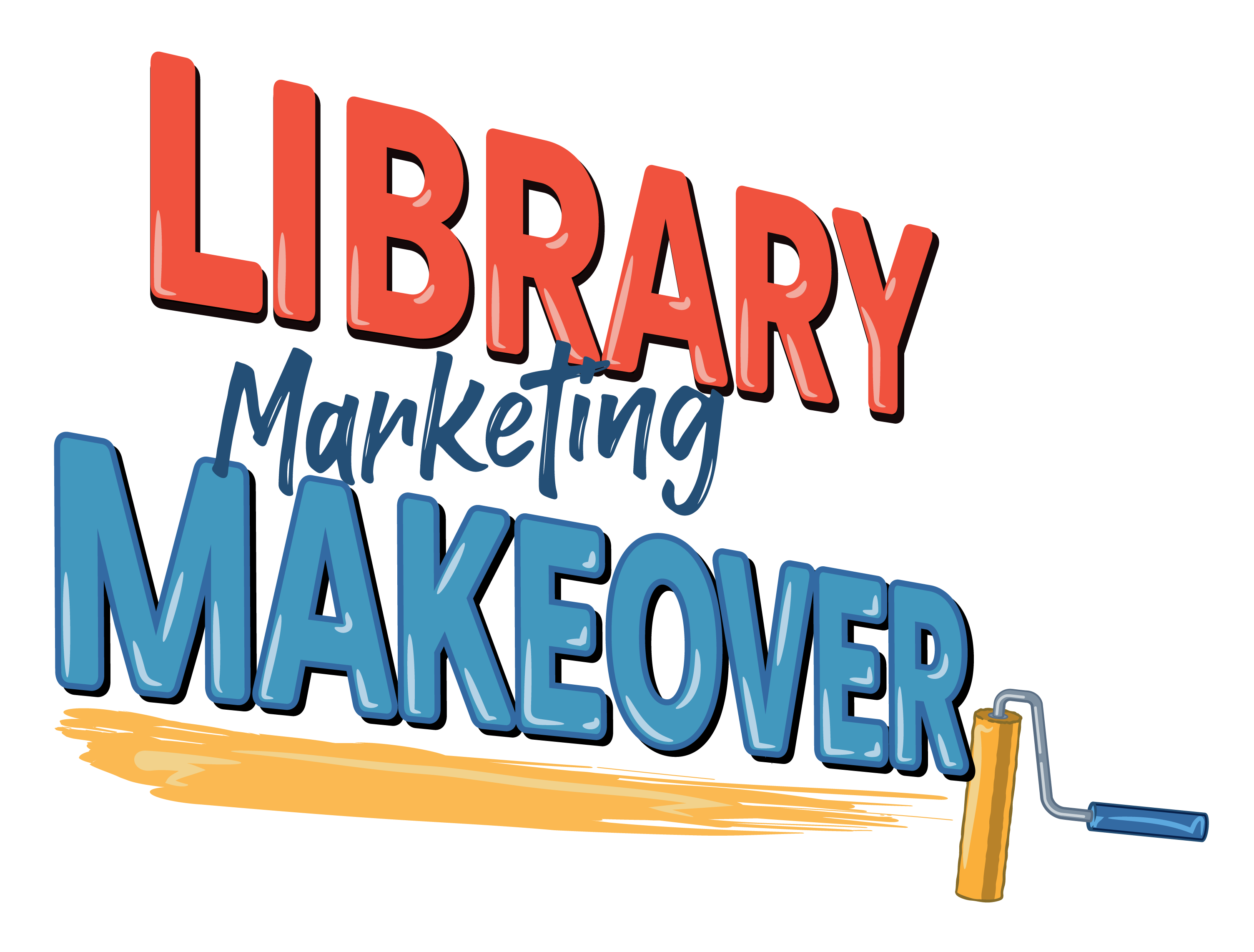
In a release this week, Hoopla announced new partnerships with the Association for Rural and Small Libraries (ARSL) and the Connecticut Library Consortium (CLC) to expand its "Library Marketing Makeover" program in 2026.
The program, which was inspired by television home makeover shows, "connects libraries with volunteer marketing experts from both inside and outside the library world to refresh and improve their marketing and outreach strategies." With the partnership, member libraries of ARSL and CLC will have the opportunity to apply for a free marketing makeover.
"The program was originally created by Trenton Smiley, Hoopla’s Director of Customer Messaging and an award-winning library marketer," the release notes. "Smiley brought the program to Hoopla in 2024, launching it in Michigan through a partnership with the Library Cooperatives of Michigan. Nearly 60 libraries expressed interest, and seven received full makeovers. The enthusiastic response confirmed the program’s potential to grow and inspired Hoopla to explore broader collaborations."
What About the Rights of Incarcerated Readers?
Over at Book Riot, Kelly Jensen leads off her weekly censorship news column with a look at the rights of readers in American prisons by librarian and Books to Prisoners VP Michelle Dillon.

And Finally This Week...
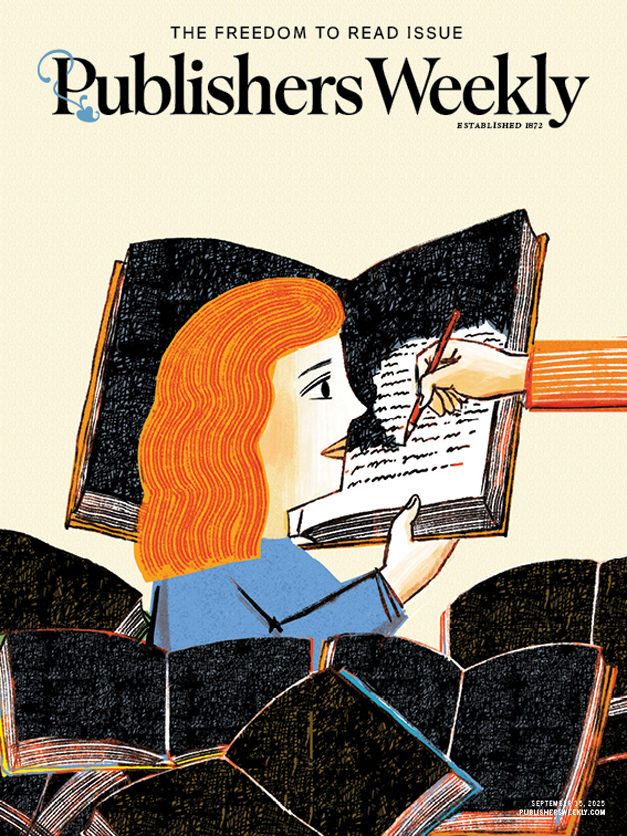
Our friends at Publishers Weekly have published their second annual Freedom to Read issue, which includes several good pieces. PW is also, once again, donating a portion of the issue’s proceeds to a right-to-read organization, this year choosing Unite Against Book Bans.
My pick: Check out Nathalie op de Beeck's profile of grassroots organizers.
















